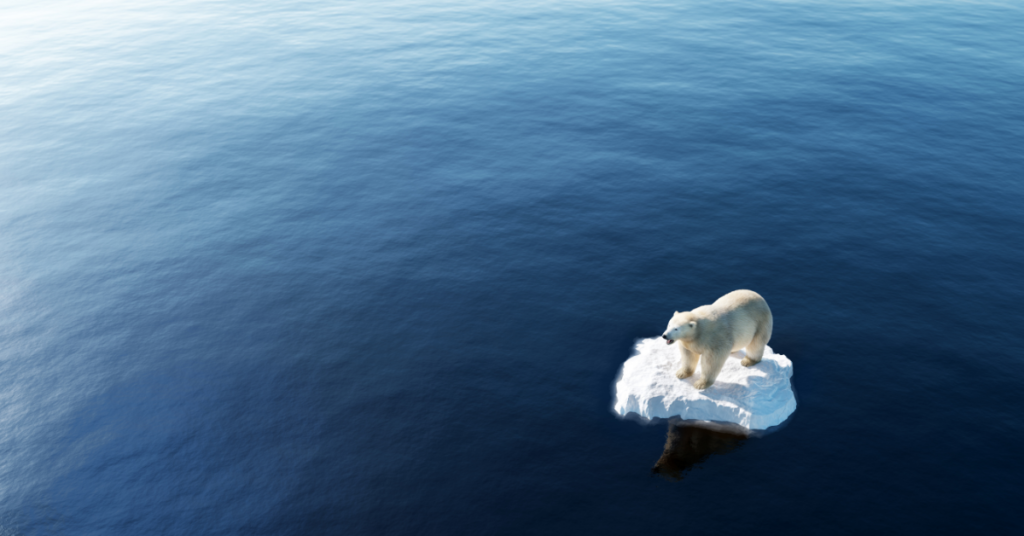When we talk about the warming of our oceans, it’s important to talk about global warming first. Global warming as a term describes a gradual rise in the average temperature of the Earth’s atmosphere and oceans; a change that it is believed to permanently alter the Earth’s climate.
There are hard and cold facts that show that climate change is widespread. The EPA has more than forty data providers from various government agencies that provide indicators of the causes and effects of climate change.
These indicators have adverse impacts on the oceans, such as ocean warming.
Greenhouse effect The greenhouse effect is the result of greenhouse gases trapping heat in the earth’s atmosphere, which is radiated from the Earth into space, causing warming of the oceans and melting of glaciers. As glaciers melt, sea levels rise and the already expanding ocean widens.
Since 1990 to 2010, manmade gas emissions have increased by 35%.Energy production is the main contributor to global emissions, followed by transport. Climate change is a change in the Earth’s energy balance that causes the climate to warm or cool. In recent years we have also steadily increased our use of fossil fuels, ultimately resulting in 5 times higher carbon emissions.
Our consumption of emissions from fossil fuels has skyrocketed over the past decade.
One of the organisms most vulnerable to global warming is coral. Higher temperatures cause coral bleaching, which leads to disease, nutrient deficiencies, and even coral death. Zooxanthellae’s enzyme systems are affected by rising temperatures, making it difficult to protect the coral from toxicity.
The fragmentation of the coral occurs when the corals undergo stress. Variances of the temperature harm corals and other animals as they have a limited temperature range in which to live.
When the water is above the ideal temperature for corals, the coral expels the symbiotic algae that reside in its tissue and supplies it with nutrients. This turns the reefs an eerily white (hence the term ‘bleached’) and while the coral is not actually dead at this point, it is more susceptible to diseases that lead to death.
When humans burn fossil fuels and release carbon dioxide, these gases are released into the atmosphere, where they cause global temperatures to rise.
However, did you know that not all carbon dioxide ends up in the atmosphere? In fact, around 40% would be absorbed by seawater. The amount of carbon dioxide that the ocean can absorb depends on the temperature of the ocean. For example, cooler water can absorb more carbon, while warmer water absorbs less.
Today, scientists believe that while the oceans are heating, it will become less and less able to capture and absorb carbon dioxide. As a result, more of our carbon pollution will remain in the atmosphere, thus contributing to global warming. Today, the oceans are considered our saviors because they absorb large amounts of our carbon pollution. This buys us time to reduce our consumption of fossil fuels.
However, there is always a consequence. The increased uptake of carbon by the ocean means that ocean water becomes acidic faster than it would otherwise. This acidification threatens many links in the food chain.
Rising ocean temperatures can create a bottleneck in the food web, which can lead to disruption of the marine food web. The higher the temperature, the greater the growth of zooplankton. Zooplankton reproduces faster than phytoplankton and ends up eating all the plankton in an area. This can have drastic effects on any organism that feeds on it.
Sea level rise is the result of ocean expansion due to warming. As sea levels rise, the ecosystems and habitats of thousands of organisms such as sea turtles and seals will be disrupted. Rising sea levels are causing coastal flooding. .Floods are ten times more likely today than they were years ago. These floods endanger species and destroy coastal habitats.
Not to mention that most of the coastal habitats around the world are inhabited by nations who live below the poverty line. Due to global warming and climate change, many of them are forced to move away or they are more hungry than fully fed as there is less and less fish in the ocean, which is not only their main source of food but as well the income.

Erzsebet Frey (Eli Frey) is an ecologist and online entrepreneur with a Master of Science in Ecology from the University of Belgrade. Originally from Serbia, she has lived in Sri Lanka since 2017. Eli has worked internationally in countries like Oman, Brazil, Germany, and Sri Lanka. In 2018, she expanded into SEO and blogging, completing courses from UC Davis and Edinburgh. Eli has founded multiple websites focused on biology, ecology, environmental science, sustainable and simple living, and outdoor activities. She enjoys creating nature and simple living videos on YouTube and participates in speleology, diving, and hiking.

